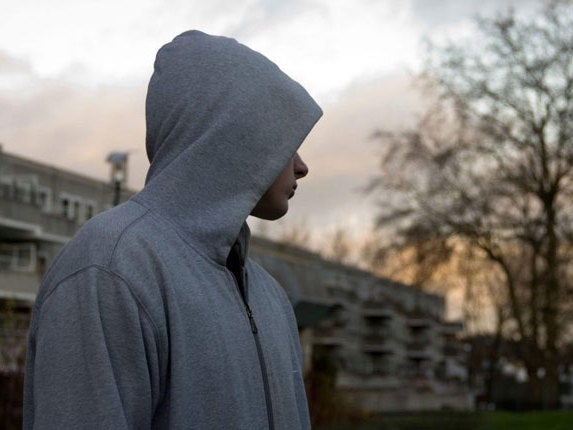Home Office reducing support for internally trafficked children despite surge in UK victims
Exclusive: More child victims of modern slavery at risk of falling back into exploitation after government announces specialised one-to-one support will be scaled back

Your support helps us to tell the story
From reproductive rights to climate change to Big Tech, The Independent is on the ground when the story is developing. Whether it's investigating the financials of Elon Musk's pro-Trump PAC or producing our latest documentary, 'The A Word', which shines a light on the American women fighting for reproductive rights, we know how important it is to parse out the facts from the messaging.
At such a critical moment in US history, we need reporters on the ground. Your donation allows us to keep sending journalists to speak to both sides of the story.
The Independent is trusted by Americans across the entire political spectrum. And unlike many other quality news outlets, we choose not to lock Americans out of our reporting and analysis with paywalls. We believe quality journalism should be available to everyone, paid for by those who can afford it.
Your support makes all the difference.The Home Office is cutting support for children who fall prey to ruthless “county lines” drug-dealing gangs despite a surge in youngsters being exploited in the UK, it has emerged.
Specialised one-to-one support is to be denied to those trafficked within Britain, leaving young people exploited by gangs vulnerable to criminalisation and having their status as victims of trafficking overlooked, campaigners said.
It comes amid a 66 per cent increase in British nationals identified as potential child trafficking victims, with the figure rising to 2,118 in 2017 – of which almost half (1,002) were said to have been exploited within the UK.
The rise has been attributed in large part to an increase in county lines gang exploitation, which sees children – often from disadvantaged households – targeted and groomed by criminal gangs who offer them large amounts of money, sometimes £700 a week, for selling class A drugs.
Since 2017, the Independent Child Trafficking Advocate (ICTA) scheme has allocated victims an advocate to fight their corner when decisions are made by authorities.
But The Independent has learned the government has made cuts to the scheme so that the advocates will not be available to internally trafficked children, meaning more than 1,000 young victims are set to lose out on the support.
The Home Office said the changes mean the service a child receives would depend on whether or not there was someone in the UK who had effective parental responsibility for them.
But charities warned that while victims may have a parent or guardian, such carers were often ill-equipped to navigate complex legal cases and protect them from falling back into exploitation.
The Children’s Society said it was dealing with an increasing number of criminal cases against young people caught up in county lines who are only identified as trafficking victims at the point that the charity intervenes.
A recent study found by Ecpat (Every Child Protected Against Trafficking) meanwhile found that a quarter of trafficked children who were in the care of local authorities in 2017 went missing from the system, raising concerns that a lack of support pushes them back into the hands of their exploiters.
Rupinder Parhar, policy officer at the Children’s Society, said: “Young people are often heavily criminalised in these cases, and they need an advocate who can challenge this. That is going to get a lot harder if they don’t have an ICTA.
“One of the factors that prevents them from going missing and being retrafficked is building that meaningful relationship with someone advocating in their best interests. Often they won’t have that relationship and trust with a social worker who doesn’t have the time to work with them closely.
“To scale down the ICTA scheme is to misunderstand the real risks young people who are internally trafficked face, and will leave more young people at risk of going missing from care.”
Catherine Baker, of anti-child-trafficking charity Ecpat, said the move was “worrying”.
“Trafficked children in care are extremely likely to go missing. The changes to the ICTA scheme risk not treating these vulnerable children equally,” she added.
A Home Office review of the ICTA system – which is currently operating in Greater Manchester, Hampshire, the Isle of Wight and throughout Wales and is being rolled out nationally – shows a total of 215 referrals were made to the service within the first year, which was higher than expected.
The most common nationality of children referred into the service was British, at 37 per cent, followed by Vietnamese and Sudanese children. The most common primary types of exploitation for referrals into the service were criminal exploitation, sexual exploitation and labour exploitation.
A Home Office spokesperson said in place of the one-to-one support, the department was introducing “expert ICTA regional co-ordinators” to work with professionals already providing support for victims who have a figure of parental responsibility.
They added: “This revised model has been developed in close collaboration with Barnardo’s. We continue to gather the views of trafficked children themselves, ICTAs and a range of other stakeholders as we develop the service.”
Join our commenting forum
Join thought-provoking conversations, follow other Independent readers and see their replies
Comments